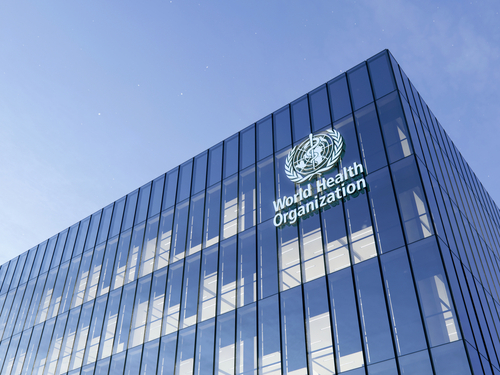Funding our future health
At a time when its need has never been greater, the World Health Organization has become under-resourced. Restructuring and reforming funding will go a long way towards ensuring this organisation will be able to tackle future, and increasingly global, challenges
COVID-19 has wreaked havoc on virtually every aspect of our lives. Healthcare systems have been overwhelmed, economies are struggling and sustainable development has been set back. No country is immune from the pandemic, and its consequences for the world’s poor have been devastating.
If that were not enough, no one can disagree that the looming prospect of future pandemics makes it even more imperative that we come together with a robust global response – and that we do so now.
Where pandemics are the enemy, the answer is to be found in a strengthened multilateralism, emboldened by a body that will play a similar role for health ministers to that played by the International Monetary Fund for finance ministers. That body, within reason, must be a no-holds barred organisation, with the means to identify, counter and prevent crises, while supporting augmented global research.
Fortunately, it does not have to be created – it is the World Health Organization. The problem, as the Independent Panel for Pandemic Preparedness and Response stated, is that we have let it become under-resourced. This is evident when you compare the two multilateral agencies in question. The IMF funds roughly 80% of its operations from guaranteed country dues. In contrast, only 17% of the WHO’s annual budget is procured from assessed contributions, with the remaining funding being voluntary. In blunt terms, this means that every year the bulk of the WHO’s funding is a question mark.
Preparing for future pandemics with a budget that is less than 20% assured is not conducive to the long-term planning desperately needed. The ratio of assessed to voluntary contributions provided by member states should be reversed – from 20:80 to 80:20 – and the overall budget of the WHO should be increased. These financial reforms would put the WHO on a more even footing with other critical international institutions, strengthening the world’s ability to withstand future global health threats.
Reform, restructure
This reform was also suggested by the Independent Panel, which recommended that we needed to “establish WHO’s financial independence, based on fully unearmarked resources, increase Member States fees to 2/3 of the budget for the WHO base programme and have an organized replenishment process for the remainder of the budget”.
Restructuring funding serves another important purpose, as it will support efforts to bolster the WHO’s role as a leader in connecting and coordinating national research bodies, companies and other international institutions dedicated to understanding and addressing pandemics. The WHO Hub for Pandemic and Epidemic Intelligence in Berlin and the COVID-19 mRNA vaccine technology transfer hub in South Africa are examples of how we must network research facilities, expertise and knowledge from around the world in order to ensure we are able to better detect, investigate and respond to emerging public health threats.
Increased funding will also support the WHO in meeting the immediate challenge of vaccine equity, including through the multilateral Access to COVID-19 Tools Accelerator and its COVAX facility. Countries without access to adequate supplies of vaccines are breeding grounds for new variants, posing a health risk to all of us.
Future threats
To those who would sit idle because of the costs involved, I would point out that unequal vaccine distribution is a severe threat to the health of the global economy and that the damaged national balance sheets around the world in the last year have made it abundantly clear that public health precedes economic well-being – without the former, the latter is unachievable.
For these reasons, among many, a strengthened WHO should be a prime focus of G20 leaders, because the G20 has the responsibility and the capacity to ignite the country-by-country support required for the needed reforms. There is no doubt that implementation will be a challenge, but the G20 was created for that very purpose. It must live up to its responsibility.
The G20 must recognise that it is imperative to spark a resurgence of support for multilateralism – these last months have strained trust and cooperation among countries that must be rebuilt if we are to be capable of truly responding to the issues at hand.
We have entered a new era, one dominated by issues that are increasingly global in nature. Whether it be future pandemics or locked-in climate change, there is only one way forward – the governments of the G20 must recognise there will be no success for any country unless we act together. The longer we delay the more insurmountable the mountain becomes.
.












